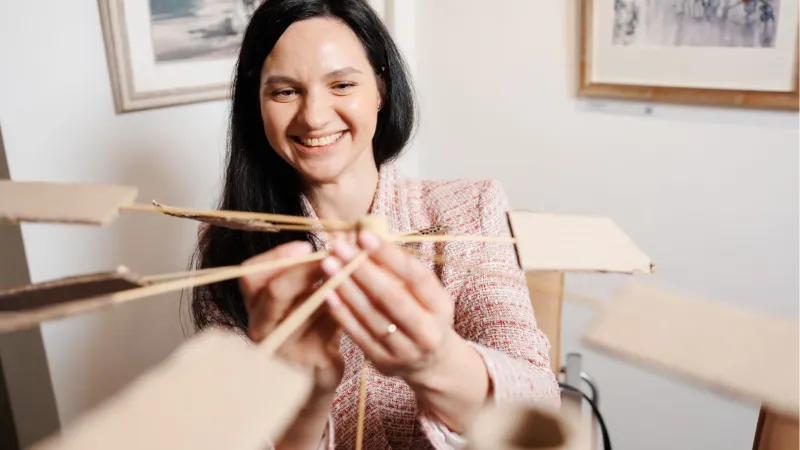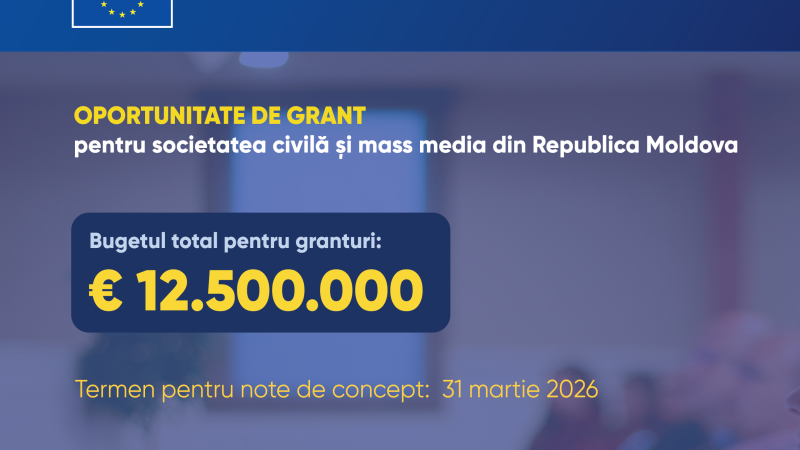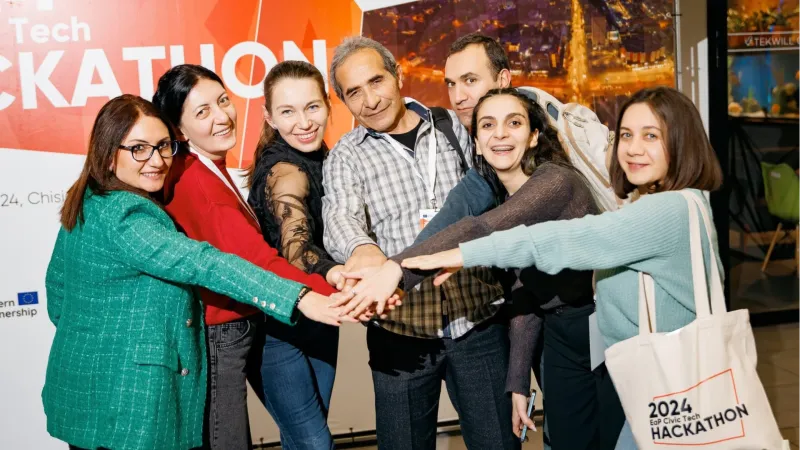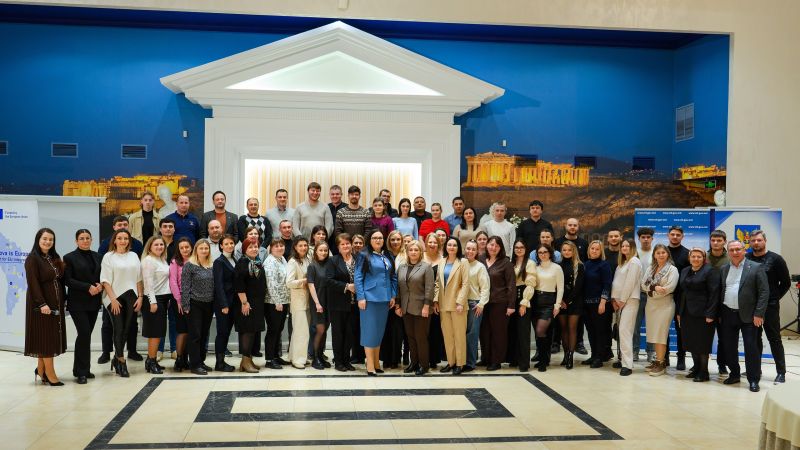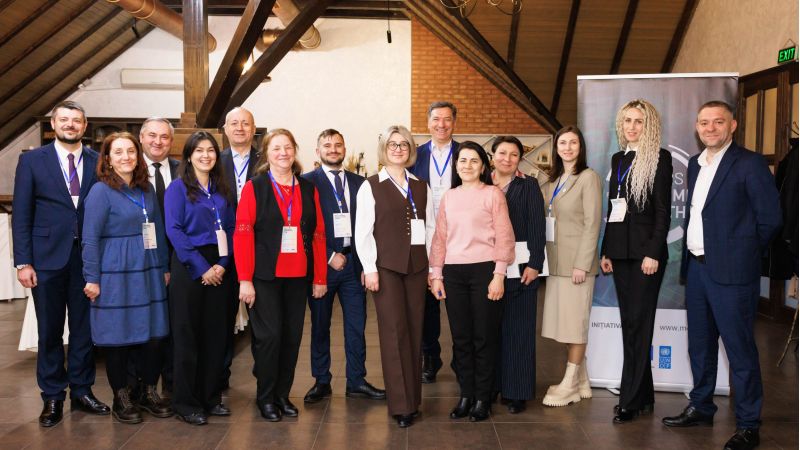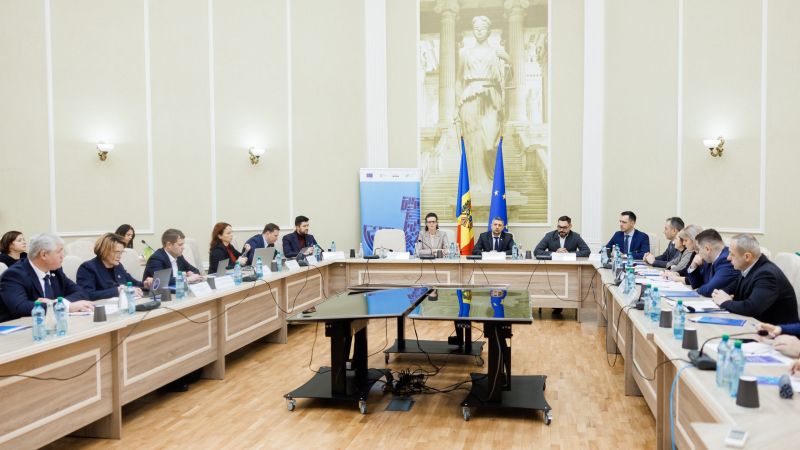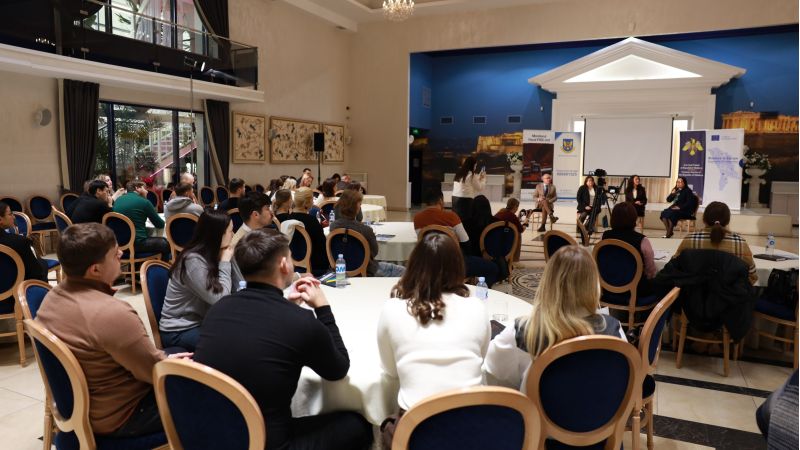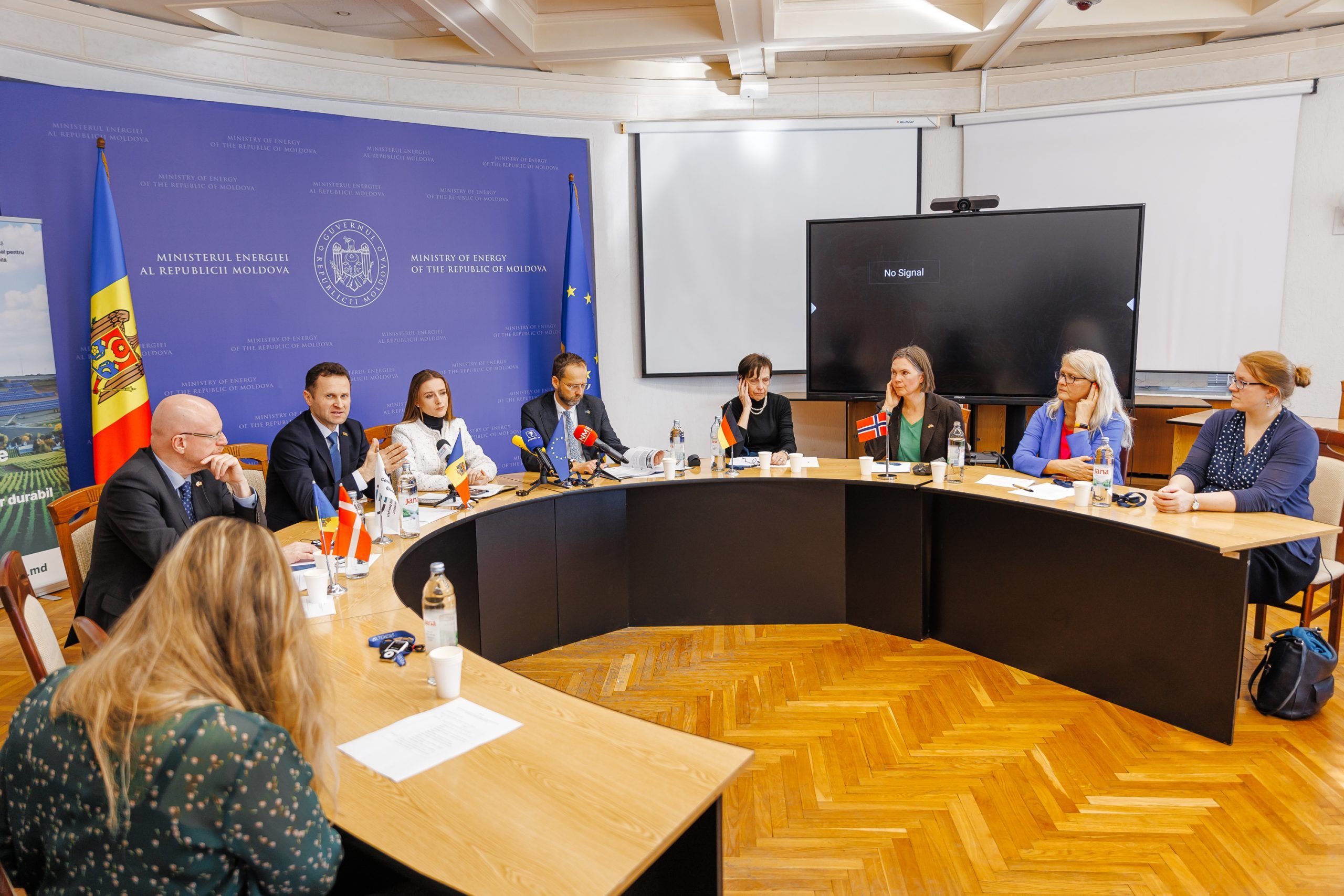
Partenerii europeni sprijină familiile din Moldova în eforturile de eficiență energetică
Un proiect de cooperare tehnică, în valoare de 25,3 milioane de euro, a fost inițiat de Guvernul Germaniei și cofinanțat de Uniunea Europeană și Norvegia. De asemenea, Danemarca și-a asumat angajamentul să sprijine această inițiativă. Proiectul are drept scop accelerarea tranziției energetice în Republica Moldova, cu obiectivul principal de a reduce dependența de importurile de energie și de a aduce beneficii financiare gospodăriilor din Moldova prin sporirea eficienței energetice și utilizarea surselor regenerabile de energie. Fondurile oferite de donatorii europeni sunt gestionate prin proiectul „Eficiență Energetică și Energii Regenerabile în Republica Moldova” (E4M).
Bugetul total include finanțare sub formă de granturi directe în valoare de 10,5 milioane de euro, destinate implementării măsurilor de eficiență energetică prin intermediul Fondului pentru Eficiență Energetică în sectorul Rezidențial din Moldova (FEERM) și programului EcoVoucher. Aceste investiții vizează reducerea semnificativă a consumului de energie și diminuarea facturilor lunare pentru familiile vulnerabile, îmbunătățind totodată condițiile de trai ale cetățenilor.
Granturile alocate prin E4M vor fi administrate direct de Centrul Național pentru Energie Durabilă (CNED).
„În Republica Moldova, consumul mediu de energie pe metru pătrat este de două ori mai mare decât în țările Uniunii Europene. Eficiența energetică este un element cheie pentru dezvoltarea sustenabilă a țării noastre. Este esențial să oferim soluții financiare care să sprijine accesul populației la tehnologii moderne și eficiente de conservare a energiei. Prin parteneriate strategice și produse financiare inovatoare putem încuraja adoptarea acestor soluții și contribui la reducerea pierderilor de energie în case”, a menționat Carolina Novac, Secretar de Stat în Ministerul Energiei.
„Este pentru prima dată când populația din Republica Moldova are acces la programe de finanțare guvernamentale. Modul în care acestea au fost dezvoltate și funcționează a atras atenția partenerilor de dezvoltare, care au decis să le susțină financiar pentru a sprijini eforturile guvernului de a facilita tranziția către un sector rezidențial mai eficient energetic. A Scopul nostru este de a obține economii la facturile pentru energie și de a reduce sărăcia energetică a populației”, a declarat Ion Muntean, Directorul CNED.
Uniunea Europeană a alocat 3 milioane de euro pentru renovarea energetică a gospodăriilor din mediul rural, în care locuiesc familii vulnerabile.
„Familiile vulnerabile din zonele rurale vor beneficia de servicii precum audituri energetice și evaluări tehnice ale clădirilor, urmate de subvenții substanțiale pentru lucrările de renovare energetică. Locuințele bine izolate înseamnă mai puține compromisuri între căldură și accesibilitate, iar acest program asigură că renovările ajung la cei care au cea mai mare nevoie”, a declarat Jānis Mažeiks, Ambasadorul Uniunii Europene în Republica Moldova.
Ministerul Federal German pentru Cooperare Economică și Dezvoltare a donat 7 milioane de euro pentru a sprijini această inițiativă.
„Reducerea consumului de energie în gospodăriile private prin măsuri de eficiență energetică aduce beneficii directe familiilor din întreaga Moldovă, asigurând economii sustenabile și de lungă durată la facturile de energie”, a subliniat Margret Uebber, Ambasador Extraordinar și Plenipotențiar al Germaniei în Republica Moldova.
Locuitorii blocurilor mici de apartamente pot accesa, de asemenea, finanțare pentru reabilitare termică și măsuri de eficiență energetică printr-un grant oferit de Norvegia, parte a unei contribuții totale de 12,6 milioane de euro la inițiativa E4M. O parte din această finanțare va sprijini și programul EcoVoucher, ajutând gospodăriile vulnerabile să înlocuiască electrocasnicele învechite cu echipamente eficiente energetic, la costuri reduse.
„Prin îmbunătățirea performanței energetice a blocurilor de apartamente în cadrul inițiativei FEERM și facilitarea accesului la electrocasnice moderne și eficiente prin programul EcoVoucher, ajutăm familiile vulnerabile să își gestioneze consumul de energie într-un mod practic”, a declarat Kamilla H. Kolshus, însărcinată cu afaceri la Biroul Ambasadei Norvegiei în Chișinău.
Danemarca alocat 2,7 milioane de euro pentru a sprijini inițiativa E4M. Cu sprijinul danez, REEF va fi extins nu doar pentru renovarea energetică a clădirilor existente, ci și pentru a oferi sprijin financiar constructorilor de locuințe.
„Șantajul energetic rusesc din această iarnă a țintit direct familiile vulnerabile din Moldova. Danemarca este alături de Moldova în efortul de a sprijini aceste familii. Asigurând o mai bună eficiență energetică, putem contribui la implementarea unor soluții mai accesibile, care să le îmbunătățească calitatea vieții și să ajute la clădirea unui viitor sustenabil”, a declarat Søren Jensen, Ambasador Extraordinar și Plenipotențiar al Danemarcei în Republica Moldova.
„Sunt mândră de ritmul rapid în care avansați în domeniul eficienței energetice, transformând teoria în realitate. Împreună cu partenerii noștri, suntem inspirați de determinarea poporului moldovean de a construi un viitor rezilient”, a remarcat Claudia Hermes, Director de Țară al GIZ Moldova.
Implementarea activităților finanțate din aceste alocări au demarat deja la începutul acestui an.
Acest proiect multidonator completează pachetul de sprijin energetic de 310 milioane de euro anunțat de UE la 4 februarie 2025.
